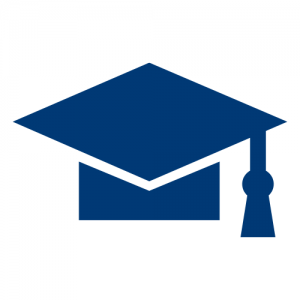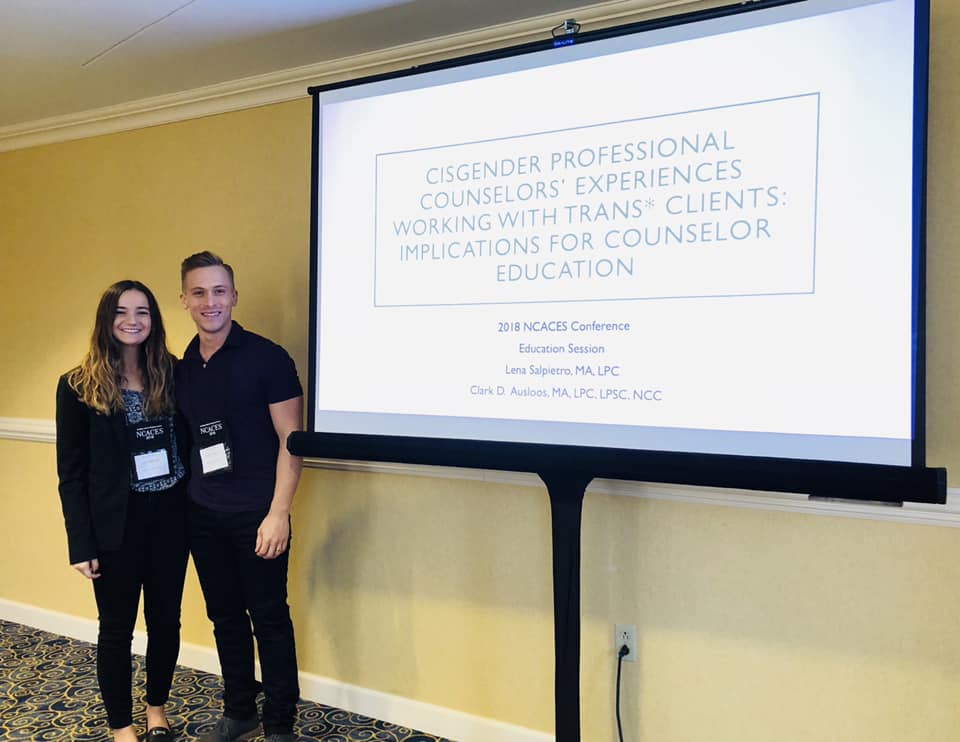Clark Ausloos wanted to find a way to have the biggest possible impact on the world.
A Ph.D. candidate in The University of Toledo’s Counselor Education Program, his goal has always been to serve people who consistently face discrimination or who find themselves underrepresented in traditional mental health communities. Through his doctoral program, he’s found a way to not only help those people individually, but to raise the overall quality of care received by the entire population.

CELEBRATING SUCCESS: During this time when we cannot come together to celebrate our graduates, UToledo is recognizing the Class of 2020 with a series of feature stories on students who are receiving their degrees. Help us celebrate our newest UToledo alumni. Visit utoledo.edu/commencement to share a message of support to graduates and come back online Saturday, May 9, to take part in the virtual commencement ceremony.
As a researcher and instructor in best practices for serving marginalized or stigmatized populations, Ausloos gets a chance to shape the future of mental healthcare.
“I can teach other future counselors how best to work with their clients,” he said. “So, in a way, I’m fortunate to be able to impact clients’ lives, as well as students and their families through my teaching.”
Fueled in part by a 2019 grant from the National Board for Certified Counselors Foundation, Ausloos is working to identify new ways to make sure all clients and students get the same level of care, regardless of their affectional or sexual orientation, or gender identity and expression.
“I’d like to work toward competencies and standards that counselors can use both in schools and in clinical counseling settings,” he said.

Clark Ausloos, a Ph.D. candidate in UToledo’s Counselor Education Program, presented his research with doctoral student Lena Salpietro at the North Central Association for Counselor Education and Supervision Conference.
He’s already making strides. Dr. Madeline Clark, one of Ausloos’s research partners, said their work has produced a set of best practices for working with specific demographic groups.
“Clark developed a research agenda that focuses on supporting trans and gender expansive youth in mental health and school settings, publishing multiple articles in peer-reviewed journals,” she said.
It’s a great result for any researcher, but it’s especially rewarding for Ausloos, who admitted he wasn’t excited about the idea of committing to a life of research early on.
“It’s something that can be really intimidating to people, and UToledo really allowed me to stand on my scholarly legs and really excel in that way,” he said. “I thought it’d be really scary. Now I realize that it’s just asking questions and being curious about things.”
In addition to his research and teaching activities, Ausloos also has worked to support access to mental healthcare at UToledo. A member (and later president) of the Chi Sigma Iota counseling honor society, he participated in an annual Wellness Fair at UToledo. The event was specifically designed to showcase new ways to stay healthy on college campuses in addition to highlighting community wellness initiatives students might not otherwise have known about. The educational aspect of the event fit perfectly with Ausloos’ ongoing focus on education and awareness.

Clark Ausloos consults with various groups on campus, including providing these students tips and tricks to manage stress during final exams.
After graduation, Ausloos plans to continue his research work while finding new opportunities to help students gain counseling and mental health-related skills, a focus he thinks will continue to boost the next generation of mental health professionals.
“To hear stories about my students using interventions with clients, and how those clients go on to do well after that, I feel fortunate to be able to have that impact.”